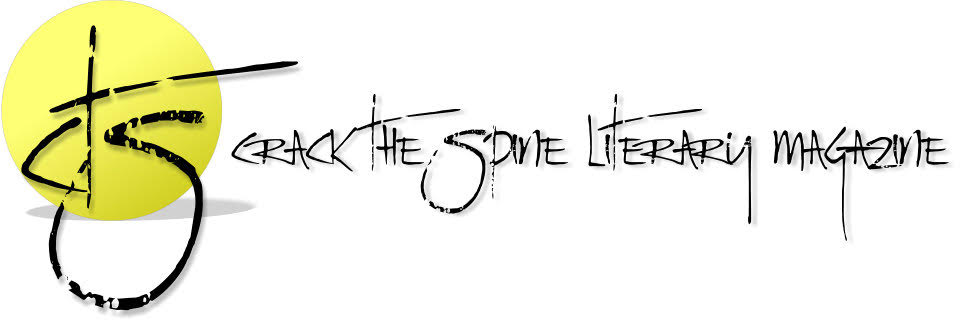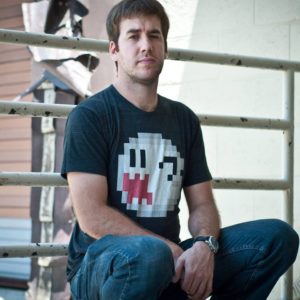Location: Pennsylvania.
Education: High school, college. Space camp is next.
The Writer
Do you see writing as a career?
I would really like it to be some day. I’m not really an office type. I like being by myself.
What do you consider to be your greatest accomplishment as a writer?
Probably when I published my first novel, Steep Drop. It is by no means the greatest book ever. But the mere fact that I finished it – and had it accepted for publication – no greater feeling in the world.
What is your ultimate goal as a writer?
I want to build a body of work that is respected and remembered. I’m not out to set the best-selling list on fire. I’m not out to be better than anyone. All I want is to be able to have the freedom to write what I want and to have a chance to express how I see the world. As long as it helps someone understand this crazy mess of a world, that’s what I want.
What is your greatest challenge as a writer?
The greatest challenge is being consistent in your habits. It’s easy to put writing off. It can be hard to sit for hours at a time. But you have to push through it. If you want it bad enough, you’ll sit and spit it out. I have to get better at writing every day. It needs to become second nature again.
The Work
Tell us about your work in Crack the Spine.
Punchline Of The Year – “A drive into the country turns more than just sharing stories. It becomes a moment of bleeding out, fading away, and attempting to hang on.”
What inspired this work?
I had been reading a lot of noir and southern fiction lately and I really liked the sparseness of it all, the less-is-more- approach. I liked the idea of creating more of a moment than a story. In life, sometimes you don’t get the full story. You just get where you come in at. And that’s what I wanted to do with this work – create a brief scene that gave you some of it and not all of it.
How long did it take you to complete this piece?
I wrote the piece in a day. I wrote it in one sitting in the morning, went back to it at night, touched it up a bit, and went with it.
Tell us about another project you have published or are currently working on.
I have several irons in the fire at the moment. I’m working on my third novel, going slowly of course. I am also putting together a collection of short stories to shop around. I also have an upcoming short story to be published by Lunch Ticket Literary Magazine in the fall, so that will be cool to see.
The Methods
Where do you write?
Usually my kitchen table. When I can, I go down to West Virginia where my aunt and uncle have a cabin in the woods.
What are your thoughts on self-publishing vs. traditional publishing?
I personally don’t see anything wrong with self-publishing. If you have a work that you feel has merit, if you have the money, and if it’s your dream, then why hold back? I think people get caught up too much on the specifics of publishing. It depends on the work. It depends on the story within. Try not to think about the cover and the company it comes from. Think about the effort and courage it took for that writer to self-publish it. That’s what matters – the fact that the desire to have a physical copy of something was so strong that it had to be created, even if no “traditional” publisher would have wanted it.
What are your thoughts on writing at a computer vs. writing longhand?
I do both but I have a specific process. Usually, I type it all out on the computer. When it’s done, I print it out. Then I get a notebook and write it out in longhand, editing along the way, cutting out the unnecessary parts. Then, when I feel it’s shortened and tighter, I’ll retype it. Less is more. It’s always worked for me.
How do you react to editorial rejections of your work?
After the first 50, it doesn’t bother me much anymore. I have a spike where I have them all saved. I print it out, it gets put on the spike. I’m probably at about 500 now, but it serves as a reminder to never give up. I encourage other writers to do the same. It serves as both a way of letting out your anger and to show you that even though you were rejected, it means you still tried.
What is your best piece of advice on how to stay sane as a writer?
Drink and read other people’s works. You can do at the same time if you wish and if you’re so lucky.
The Madness
What is your favorite book?
Tough to narrow it down to one, but probably What We Talk About When We Talk About Love by Raymond Carver. Read it five or six years ago, completely changed my philosophy on writing. The man was a master.
Who would play you in the film of your life?
Alan Ruck. Cameron from Ferris Bueller, for those not familiar. I look just like him. I’ve had whole bars of people tell me. And I begrudgingly have to admit now that they’re right. They’re all so right.
What makes you laugh?
The Three Stooges, John Oliver.
What makes you cry?
The ending of the film Her, Shane Victorino grounding out to first to end the 2009 World Series.
What’s in that cup on your desk?
Dust. I haven’t touched the damn thing in years. Probably should clean it out. Next to it is a plastic gray pony that Amanda Palmer threw to me at a Dresden Dolls concert, if that has any relevance.
Beer or Wine?
Beer, definitely.
The Beatles or The Rolling Stones?
Pass on both.
Additional Reading on Kevin


Nice interesting